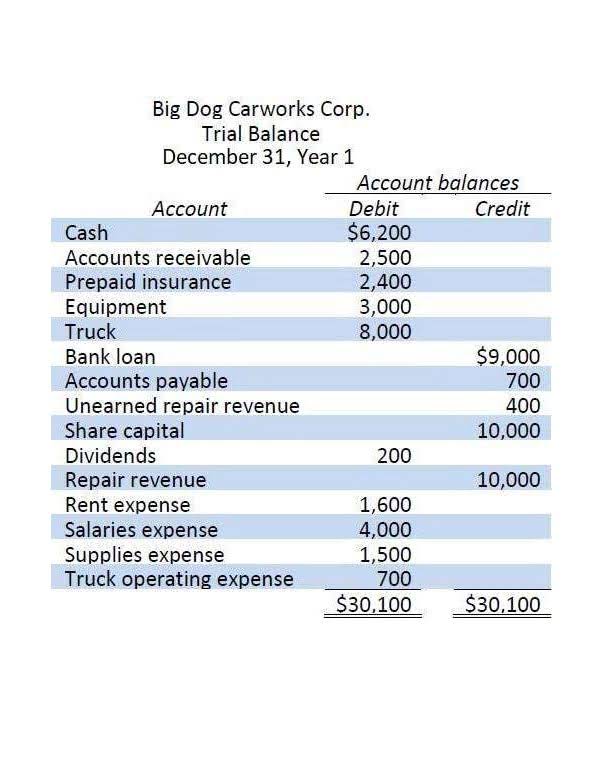
It usually depends on the area of practice, the experience of the individual lawyer or law firm, and the area that they serve. The terms “non-refundable reservation fee” or “booking fee” can also work well in service-based contracts. The key is consistency—whatever term you choose, use it consistently throughout the https://dev-sunnykr.pantheonsite.io/what-is-a-small-business-balance-sheet-pnc/ contract.

The Ethics of Overpromising Cost Savings to Investors
In the second half of the 20th century, retainer fees became more common in the consulting industry. This was because companies wanted to hire top consulting firms for long-term projects or ongoing strategic advice. A ‘per retainer fee’ is an upfront payment to secure a professional’s ongoing services, often billed monthly, ensuring their availability for future work.
Define the scope of work
Additionally, setting up a regular payment schedule, whether it’s monthly or quarterly, can help both parties manage their cash flow more effectively. Consistent payment intervals make it easier to predict and plan for future expenses. A retainer fee secures a professional’s future services, often non-refundable and used to reserve their availability. A deposit, on the other hand, secures a specific transaction and is usually refundable if the agreement is canceled.

Managing Client Expectations on Retainer Fees
- In a perfect world, clients would see a refund if they do not obtain their desired outcome.
- It is typically calculated by estimating the hours needed for the project and multiplying it by the professional’s hourly rate.
- This ensures that you are compensated fairly for your time and helps in maintaining transparency with clients.
- Lawyers who charge less for their retainer fee may be newer or do not have the experience you’re looking for.
- I’m going to give you a few tips for negotiating a retainer agreement with a new client, as well as some examples of retainer agreements and how they work.
- It simplifies client agreements but limits earning potential and discourages efficiency.
The enforceability depends on whether the fee is a reasonable payment for securing the professional’s availability. If a professional is terminated for cause, such as misconduct, a court may require that even a true retainer be returned. Whatever the amount is, your law firm will charge you on a contingency fee basis. This means they will take a set percentage of your recovery, typically one third or 33.3%.

Importance of Retainer in Accounting – Retainer Fees Defined and Explained
Over the course of the transaction, the lawyer spends a total of 15 hours working on the case. As per the retainer fee agreement, the lawyer will charge Mr. Johnson an additional $500 for the extra 5 hours, bringing the total cost to $1,500. The consultants who implement retainer strategies don’t just grow their revenue; they fundamentally change their relationship with their business. Instead of constantly chasing new projects, they focus on delivering ongoing value to committed clients who pay them consistently month after month.

Retainer Fee Payment Models: Advanced Payment, Instalment, and Subscriptions
Flat fees are particularly appealing for clients who want cost certainty upfront, but they may not cover unexpected complications. It is sometimes called a finder’s fee and is used in many industries, like insurance, real estate, and retail. The fees, typically in cash, could https://www.bookstime.com/articles/what-is-a-corporate-purchasing-card be anywhere from 5% to 25% of the total sale, depending on the type of transaction.
- We can’t stress enough the importance of factoring in case complexity when deciding your retainer fees.
- This arrangement is common in professional services, allowing clients to secure consistent access to expertise while providing the service provider with predictable income.
- While they may seem like a significant upfront cost, they provide the assurance and experience necessary to navigate the complexities of divorce proceedings.
- Consider offering trial retainers to reduce client risk and build confidence, especially when working with new clients or proposing your first retainer relationship with an existing client.
- The attorney can receive retainer payments in increments, depending on how many hours they put into the case.
- You can streamline future transactions by including a section about the client’s capacity to question or challenge charges that may be incorrect.
What are the pros and cons of consulting retainers?
GoCardless helps you automate payment collection, cutting down on the amount of admin your team needs to deal with when chasing invoices. Find out how GoCardless can help you with ad hoc payments or recurring payments. Get started with CaseFox today—track time, manage cases, and bill clients with ease. Try CaseFox today and see how it can make the process of legal billing efficient for you. With a performance retainer, the agency will be paid according to the success of their work, usually via agreed-upon performance milestones.

What Is the Average Retainer Fee for Legal Services?
The distinction between refundable and non-refundable retainers is critical for clients. Refundable retainers, usually deposited into a client trust account, act as an advance on legal fees. Attorneys draw from this account as they work, billing for services rendered. Retainer fees differ significantly by practice area, reflecting the demands of each field. In family law, covering divorce and custody issues, fees generally range from $2,500 to $5,000, accounting for the unpredictable nature of disputes. In criminal defense, misdemeanor cases typically involve fees between $1,500 and $3,000, while felony charges can exceed $5,000.
What Are The Benefits of Retainer Fees For Lawyers (and Clients)
Below, we discuss in greater detail the benefits and limitations of a retainer fee agreement. It’s important to clarify whether your lawyer will be charging a flat fee or if they will charge by the hour. Some lawyers charge a flat fee per task or project, while others charge by the hour in minimum increments such as tenths of an hour or quarter of an hour.
Pay for Access Retainer
A retainer fee is often paid after you have hired an attorney for specific criminal charges that have already occurred. Having an attorney on retainer places the lawyer on standby to help you if a legal issue arises. Both types of retainer fees are what is a reasonable retainer fee kept in a separate trust account and are withdrawn only when legal costs are incurred for work performed that was contracted by the client. A retainer fee is a payment made in advance to secure the services of a professional, most commonly an attorney. It ensures the professional is available to handle a client’s legal needs.

